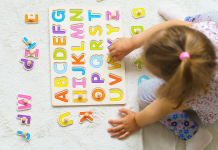 When I began sleep training my daughter, I faced serious backlash. One woman told me that allowing her to cry (at all) would give her brain damage. Some suggested I would ruin any attachment she may have with me, leading to lifelong developmental issues. When I started my first Facebook group for sleep support, I had a mother tell me she was going to report me to the Department of Family Services for promoting child abuse.
When I began sleep training my daughter, I faced serious backlash. One woman told me that allowing her to cry (at all) would give her brain damage. Some suggested I would ruin any attachment she may have with me, leading to lifelong developmental issues. When I started my first Facebook group for sleep support, I had a mother tell me she was going to report me to the Department of Family Services for promoting child abuse.
For me, it is always about prioritizing sleep for my children. When I worked in a lower school, I witnessed firsthand what happened to a child when her parents did not prioritize sleep–and it wasn’t pretty. The child’s emotional regulation was limited at best, and she regularly had meltdowns and tantrums. From my own personal experience, sleep deprivation led to a tired, sad mom, and a tired, sad baby.
Aside from anecdotal evidence, I recently completed a course out of the University of Warwick (UK) entitled, “Babies in Mind: Why the Parent’s Mind Matters,” to learn more about infant mental health and a parent’s role in creating secure attachment with his or her infant.
Our connection with newborns is, indeed, incredibly important in building brain architecture. The relationships we (specifically mothers) have with our infants help establish the ways in which their brains actually develop. Positive interactions with a primary caregiver (particularly mothers), including serve and return interactions, help set the stage for the way a child’s brain will develop for a lifetime. These positive interactions also help develop secure attachment. Responding to our newborns’ cries is, of course, part of creating a secure attachment. That positive response to their cries is essential. We also know that if a mother is severely sleep-deprived, she is more prone to postpartum depression, which can lead to an inability to attend to her baby’s cries in a positive manner and, thus, a higher risk of insecure attachment.
In addition, sleep is essential to brain development. Studies continue to show us that sleep is just as important as nutrition and secure attachment.
We also know that parental intervention for infants who are not sleeping well (at least 10 hours overnight) not only improves poor sleep, but also sets the stage for healthy sleep for years to come. In a 2015 study entitled “Sleep and Early Cortical Development,” researchers concluded that “Insufficient sleep in early human life predicts concurrent and future health consequences, such as mood disorders, cognitive problems, and obesity.”
Okay, so we know that secure attachment and sleep are both essential to brain development in our infants, and we know that sleep is also essential for moms (or primary caregivers) to help create that secure attachment. Why, then, is there such a polarizing reaction by some when we talk about helping our infants learn to sleep? Well, because sometimes people misunderstand or misinterpret how we create a secure attachment with our infants.
In no way, shape, or form am I suggesting that a newborn should be left to cry.
Quite the opposite; however, once a baby reaches about four months of age and is still waking every two to three hours throughout the night, it may be time for some parental intervention. Sometimes that intervention will include a few tears. Do these tears lead to insecure attachment and brain damage in our children? Absolutely not.
We know that toxic stress can disrupt brain architecture and secure attachment, and floods a baby’s brain with cortisol and other stress hormones. But what exactly is “toxic stress”? According to the National Scientific Council on the Developing Child’s working paper “Excessive Stress Disrupts the Architecture of the Developing Brain,” toxic stress is defined as “strong, frequent, or prolonged activation of the body’s stress management system.” Stressful events that are chronic, uncontrollable, and/or experienced without children having access to support from caring adults tend to provoke these types of toxic stress responses.”
There is a misconception that helping your infant or toddler get good rest means shutting the door and leaving them in their crib to cry uncontrollably for hours and “passing out from exhaustion.”
It is always painful for me to hear this misconception repeated because this is just not what it’s about at all. Sure, when you try to switch things up for your infant or toddler, you may experience some protest cries, but more often than not if you set up a proper sleep environment and offer sleep at age-appropriate times, these protest cries are minimal.
If your child is fed, clean, and otherwise healthy, a few tears over the course of a few nights is not going to damage her for life. In fact, a 2016 study published in the journal Pediatrics concluded that, “Both graduated extinction and bedtime fading provide significant sleep benefits above control, yet convey no adverse stress responses or long-term effects on parent-child attachment or child emotions and behavior.”
 I’m not here to suggest that parental sleep interventions are for everyone. I know for a fact that they are not. Each family should do what works best for them.
I’m not here to suggest that parental sleep interventions are for everyone. I know for a fact that they are not. Each family should do what works best for them.
But I am here to suggest that if you and your child are not getting the sleep you need, please ignore the polarizing “Mommy Wars” and do the research. A few tears will not ruin secure attachment or damage your child’s brain. You may even have the same experience as one of my recent clients: her daughter was waking every 90 minutes to two hours and crying, despite all efforts to be soothed by mom. This mom recently told me: “I can definitely tell a difference in her attitude. For example, she smiled at me when I came in and turned on the lights. It had been so long since I had seen her smile and I found myself smiling back at her.”










